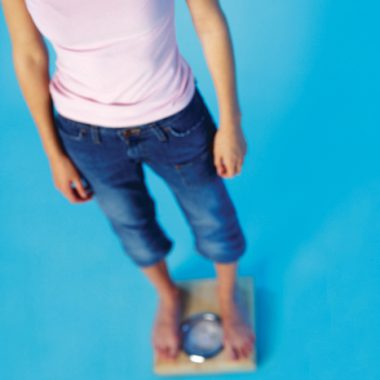Patients with binge eating disorders should participate in guided self-help programmes as a first-line treatment option, according to a draft quality standard released by NICE.
Patients who suffer from binge-eating disorders should be offered guided self-help measures first before trying specialist eating disorder-focused CBT or family therapy, NICE has highlighted.
The quality standard is based on published guidance and sets out areas that doctors should particularly focus on in order to improve outcomes for patients with eating disorders.
The standard recommends that guided self-help should be offered first-line for patients with binge-eating disorders as it is shown to improve relapse rates and reduce the frequency of binge eating. If this is ineffective after four weeks or otherwise contraindicated, the patient should be offered specialist CBT-ED, which is focussed on eating disorders.
It also recommends family therapy for children with bulimia nervosa, alongside CBT-ED, which has a positive effect on remission and hospitalisation rates.
Professor Christopher Fairburn, director of the Centre for Research on Eating Disorders at Oxford and a topic expert from the committee said: ‘Specialised CBT can help patients better understand their eating disorder so that they can recognise what causes it to persist and change negative views about themselves and their body.
‘We want more people with eating disorders to benefit from this type of tailored therapy so that they can overcome the disorder and be at minimum risk of relapse.’
The quality standard is currently out for public consultation and will be published in January 2017.
Draft quality standard in full
- Patients with anorexia should have a discussion about the first-line treatment options available to them.
- Patient choice is important and doctors should dicuss the talking therapy options available to help the patient choose
- Patients with bing eating disorders should be offered guided self-help programmes as the first-line treatment option.
- Guided self-help is shown to improve remission rates and the frequency of binge eating in these patients. If it is unacceptable or ineffective after four weeks, specialist eating disorder-focusses CBT (CBT-ED) can be tried
- Children with bulimia nervosa should participate in bulimia nervosa-focussed family therapy.
- Family therapy is shown to improve remission rates and reduce hospitalisations.
- Patients with eating disorders and comorbidities should have the effect of all their treatments monitored using outcome measures.
- Monitoring the effect that treatment has on comorbidities is important for contiunity of care and allows assosictaed mental and phsycial health problems to be treated earlier and more effectively

















